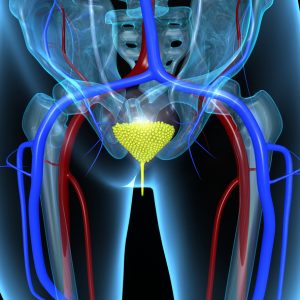
This is a problematic condition because it increases the risk of infection, bladder stones, and urinary incontinence. The good news is, patients can seek out treatment for neurogenic bladder to help them get back in control.
Neurogenic bladder causes, risk factors, and complications
As mentioned, neurogenic bladder occurs when the nerves regulating the urinary tract activity get damaged. Various brain and nerve disorders can contribute to neurogenic bladder, including Alzheimer’s disease, tumors on the spinal cord, multiple sclerosis, Parkinson’s disease, spinal cord injuries, spinal cord birth defects, and stroke.
Conditions affecting the bladder muscles, too, can contribute to neurogenic bladder. Examples include diabetic neuropathy, long-term alcohol abuse, pelvic surgery, and spinal nerve damage.
Factors that increase one’s risk for neurogenic bladder include:
- A condition that affects the nervous system
- Erectile dysfunction
- Alzheimer’s disease, polio, or syphilis
- Multiple sclerosis
- Spinal cord defects
- A stroke
- An accident or other physical trauma
Neurogenic bladder also comes with a set of possible complications such as higher risk of urinary tract infections, bladder stones, urinary retention, and damage to the kidneys or bladder as a result of frequent urinary tract infections.
The main symptoms of neurogenic bladder are changes in urinating habits such as urinating too much or too little. Other symptoms include dribbling stream when urinating, inability to fully empty your bladder, straining during urination, loss of bladder control, increased urinary tract infections, leaking urine, and difficulty determining when your bladder is full.
Neurogenic bladder diagnosis
Neurogenic bladder is properly diagnosed by reviewing the patient’s medical history and performing a physical examination. Other tests which can help solidify a diagnosis of neurogenic bladder include cystometrogram, which tests bladder function and capacity; electromyography, which tests the bladders muscle tone; spinal and brain imaging, and kidney and bladder imaging.
Treatment options for neurogenic bladder
Treatments for neurogenic bladder may be combined in order to increase the odds of a positive outcome for the patient. Treatment options for neurogenic bladder include:
- Electrical stimulation therapy: Electrodes are placed on the bladder to send signals to the brain, informing it of the need to urinate.
- Medications: Medications may reduce or help control muscle contractions to ensure proper emptying of the bladder.
- Catheterization: A thin plastic tube is inserted into the bladder to release urine.
- Surgery: An artificial sphincter is inserted to stimulate urination.
The cause and severity of your neurogenic bladder will determine what treatment option your doctor will recommend.